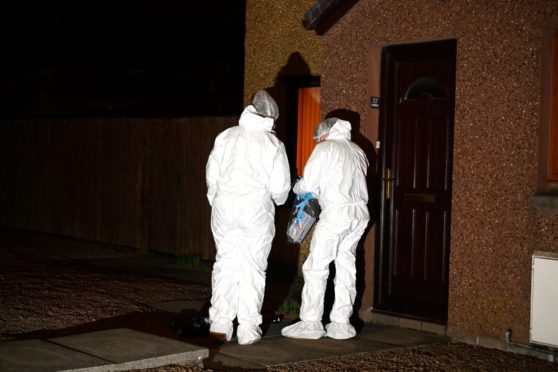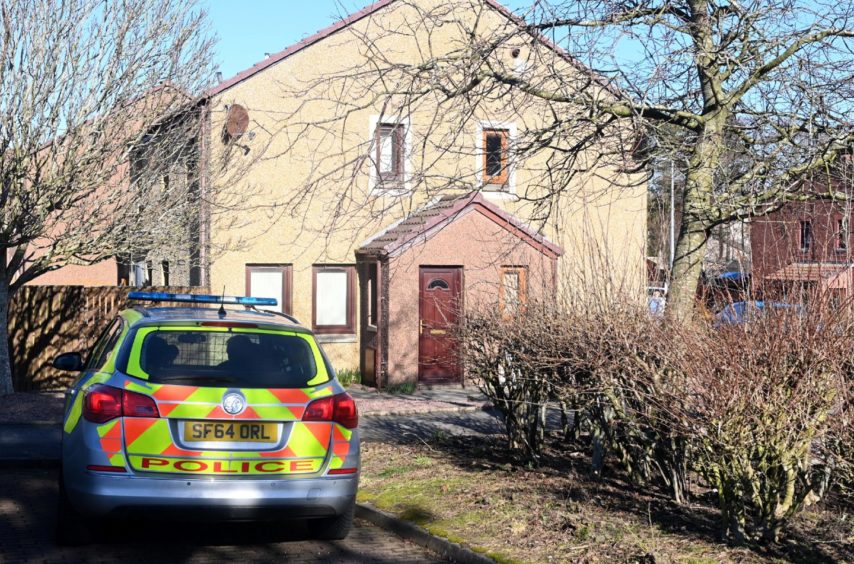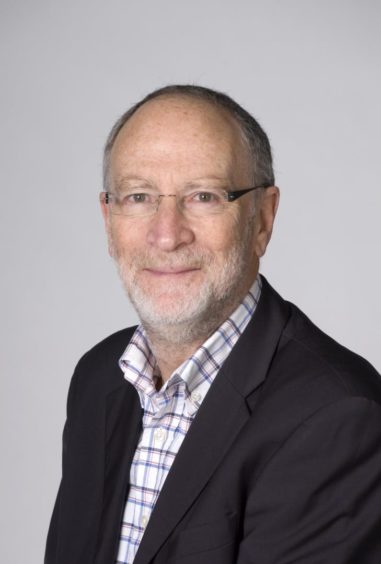A psychologist has today told of how social isolation and loneliness among the elderly is a “real problem” and is set to get worse.
Professor Sir Cary Cooper spoke out about what leads to social isolation and the consequences of it.
Last week the Evening Express revealed how her death, which is being treated by police as “unexplained”, was only discovered when she failed to turn up for a Covid-19 vaccination appointment.
When asked where she was her husband said she was abroad.
The case has been described as ‘heartbreaking’
Forensics officers carried out a thorough examination of the property where Mrs Malley’s body was discovered on Thursday February 25, and tests are being carried out to determine how she passed away.
The case has been described as “heartbreaking” by local and national politicians and First Minister Nicola Sturgeon has backed calls for a nationwide loneliness campaign to help combat social isolation.
Psychology expert Professor Sir Cary Cooper has spoken of how loneliness among the older generation is becoming a major problem and issues such as a lack of technology skills is exacerbating it.
The professor of organisational psychology and health, at the University of Manchester said: “Given what’s been going on with Covid, and thinking about all the older people in the last year, some of whom are in care homes and are just on their own. Their husband died, they are by themselves, their wife died or they are single, and just lonely – just very little contact.
“I think loneliness among older people is a real problem, I think we’ve always had it – Covid has highlighted it even more.
“If they are older people who don’t have tech skills and knowledge, they are even more isolated. A lot of people say ‘my parents are in late 70s early 80s, they don’t understand Facetime, Skype or any of that’ – I would go over there and train them!”
He spoke of the importance of older people having opportunities to get to grips with technology that would help them keep in touch with friends and family, and said: “People are keeping in touch on all the social media platforms, the government gives computers to young kids for school, why aren’t they giving computers and training them (older people) to use them so they can do Skype and the other platforms and keep in touch with family and friends.”
National charity Age Scotland previously highlighted the growing problem of isolation among older people with tens of thousands of people going days or even weeks without a friendly call or visit.
‘I think we have a real problem’
Professor Cooper spoke of how people can find themselves isolated later in their lives, he said: “Partly (due to) circumstances your partner, husband, wife – you move away. A lot of people when they retire leave the communities they were in when they were working. They leave their social network, and then their spouse or partner dies and they are left socially isolated.
“They don’t have the infrastructure, they haven’t made the kind of contacts, they don’t have the long-term friends that you would get, and since they are not necessarily tech savvy – they can’t keep in touch with the people where they came from except by telephone.
“If we weren’t so mobile, decades ago when we stayed in communities everybody knew everybody else and there was not so much social mobility or occupational mobility. But now people do shift around a lot, don’t necessarily stay where they finished their work. I think all of that leads to individuals being socially isolated.
“Also their kids of course have moved away, gone to another part of the country for a job, they aren’t with the extended family, so the support from the extended family is very limited. When do they see them? Very rarely. I think we have a real problem.”
And he issued a warning that it would get worse, saying: “This is not a problem we had 40 years ago, it’s a problem we have now – high social occupation mobility, less of a network, technology linking people, but older people aren’t as tech-savvy as they should be.
“There’s a lot of issues, I think loneliness has crept up on us, you would never have discussed this 40 years ago when people lived and worked within a five/10 mile radius.
“I think the mental health consequences of loneliness are astronomical.
“Anglo/American culture is not good on helping the elderly, keeping in touch. The generations – the X, the Y, millennials – they are encouraged to be independent and less connected to their extended family than we used to see, so for the elderly, it will get even worse.”
Professor Cooper believes public campaigns about social isolation would help raise awareness.
He said: “We do a lot of public health messages, the one thing they don’t do in public health broadcasting is ask why are they not saying things like ‘if you have elderly mother and father make sure you get in touch with them’.
“We should have public broadcasting messages that highlight this and say things like if your parents are living far away from you and they are elderly make sure you contact them. If they don’t know how to use social media, help them with that.
“We should have public broadcast messages because it is a mental health issue.”


